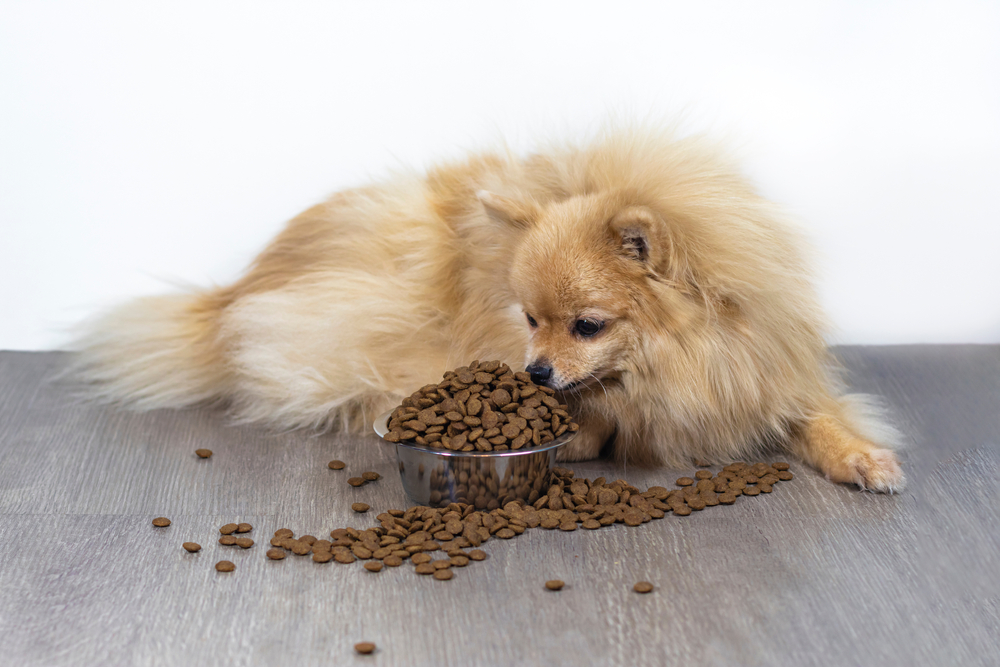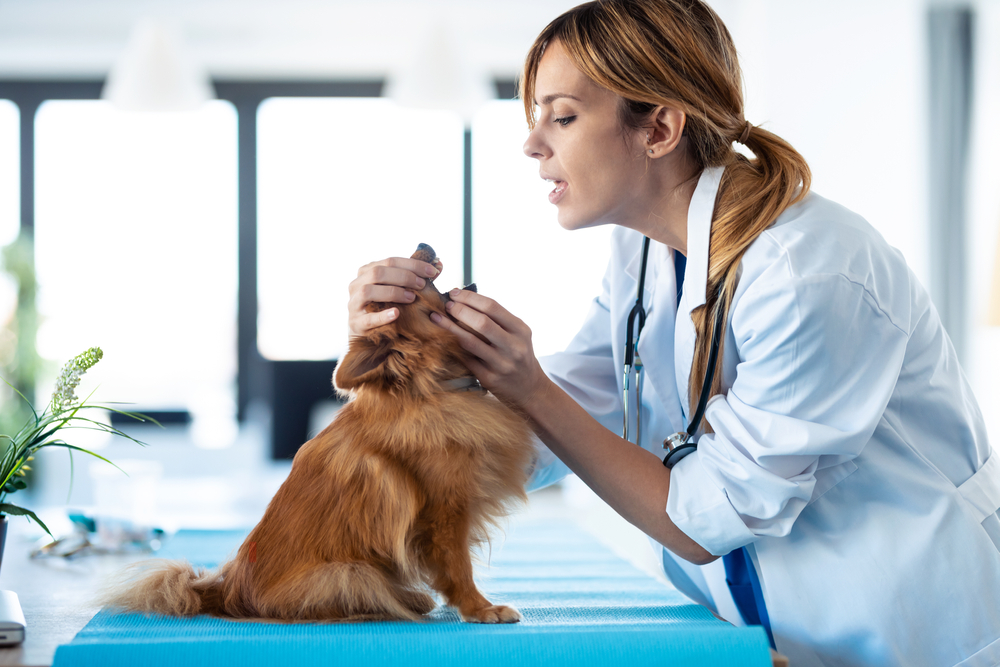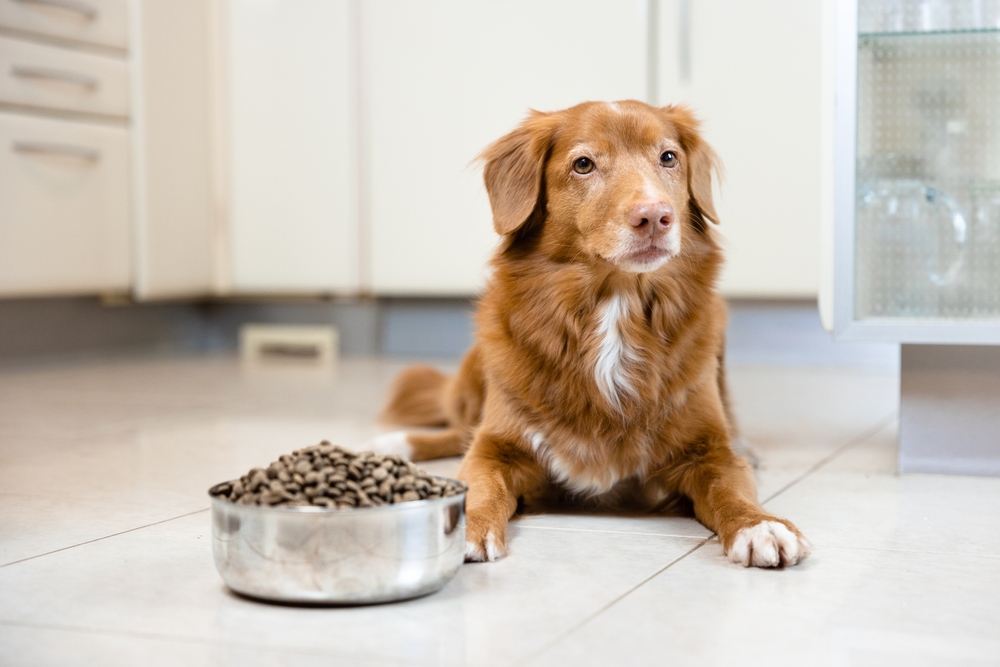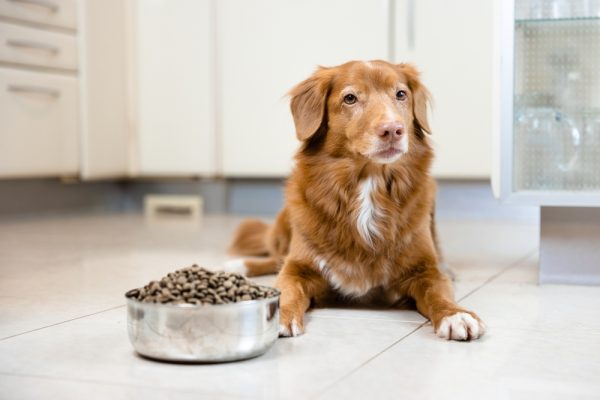For anyone who owns or lives with a dog, it can be very unpleasant to have a dog that’s constantly stinky. Some dogs may smell bad because they love to roll in mud or eat cat poop out of the litter box, while other dogs may be gassy, seemingly always passing stinky gas.
Have you ever noticed that some dogs seem to simply have an unpleasant odor that emanates from them no matter what, though? Could your dog’s food be causing them to be stinky? The short answer is that your dog’s food could be impacting the way they smell. Here’s what you should know.

How Can Dog Food Make Your Dog Stink?

We know that certain foods can cause people to smell differently, like garlic and onions. Oftentimes, odors caused by foods come from the mouth, but in some cases, you may even notice an unpleasant odor when you sweat. Since dogs don’t sweat anywhere but their paw pads, they’re unlikely to emanate an odor across their whole body because of the food they’ve eaten. Your dog’s food could impact the way that their mouth smells, though, and some dogs do have bad enough breath that it could clear a room.
There are less direct ways that your dog’s food could be impacting the way they smell, though. If your dog has food allergies, then their food could be causing their skin to flare up and become itchy and develop rashes. For dogs with allergies, secondary bacterial and yeast infections that take hold because the skin’s healthy barrier is broken are common. If you’ve ever spent time around a dog with yeasty skin, then you know that it has a distinct, unpleasant smell.
If there is a component in your dog’s diet that their body has trouble properly digesting, or they have a food intolerance, then their food may be causing them to develop excess gas which will obviously lead to some unpleasant odors. For some dogs, a change to a new food can reduce or stop their flatulence, but some dogs seem to be gassy no matter what.
How Canine Dental Health Plays a Role

For the majority of dog owners, brushing their dogs’ teeth every day isn’t something that they’re doing. In many cases, we may never brush our dogs’ teeth. As dogs age, they usually need to begin getting dental cleanings done by their veterinarian. These dental cleanings help maintain the health of the teeth and gums, as well as remove plaque and tartar that may increase an unpleasant mouth odor.
Some dog foods are specially formulated to help support oral health by reducing plaque and tartar buildup. However, many people believe that feeding their dogs any type of dry kibble will help to keep their teeth clean. Although this has been a common belief for a long time, studies have indicated that dry dog food doesn’t support dental health any better than wet or other types of foods. Because of this, some pet owners may be relying on their dog’s food to improve the way they smell.
In reality, their food is likely not impacting the way they smell at all, whether positively or negatively. With the exception of a few prescription dog foods that are designed specifically to support dental health, your dog’s food isn’t going to help reduce their stinky breath.

In Conclusion
While your dog’s food is unlikely to impact the overall smell of their body, it can impact their breath, their digestion, and their skin and coat health. Imbalances with oral, digestive, and skin and coat health can all lead to bad odors for dogs for various reasons.
If your dog has developed an unpleasant smell, then the best course of action is to work to identify the source of the smell and have your dog evaluated by a veterinarian. In some cases, a new and unpleasant smell can indicate that there is an underlying medical problem occurring with your dog.
Featured Image Credit: Zuzanna Paluch, Shutterstock









